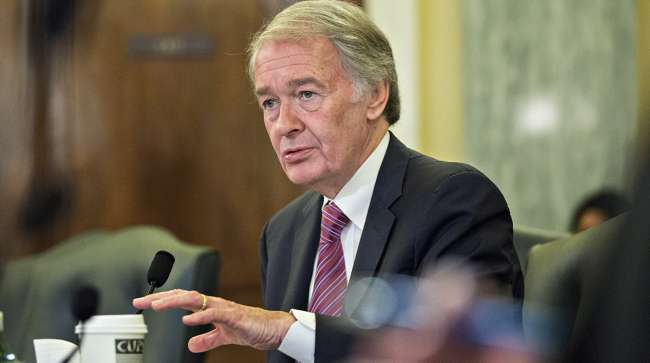Senior Reporter
Autonomous Vehicle Policy Legislation Awaits Senate Action

Legislation meant to facilitate the development of self-driving cars awaiting floor consideration in the Senate is among the measures on the chamber’s docket when senators return to Capitol Hill April 9 from the Easter recess.
Congressional aides told Transport Topics there are no updates on when the bill will be debated on the floor.
Objections regarding safety provisions raised by key senators have prevented floor debate on the bill. Massachusetts Sen. Ed Markey (D) joined several of his colleagues in citing concerns about the legislation. The recent fatal crash in Tempe, Ariz., involving an Uber autonomous car prompted their calls for strengthening provisions in the bill regarding automotive defects, cyberattacks and privacy.
Autonomous vehicle technologies hold enormous opportunity, and enormous risk. We must have robust safety, cybersecurity, and privacy rules in place before these vehicles are traveling on public roads via @BostonGlobe.https://t.co/jdmgZmFTp6
— Ed Markey (@SenMarkey) March 21, 2018
While his office did not respond to requests seeking comment, Markey said on March 19: “If these technologies are to reap their purported safety, efficiency and environmental benefits, we must have robust safety, cybersecurity and privacy rules in place before these vehicles are traveling our roadways to prevent such tragedies from occurring.”
“I’m committed to work with my Senate colleagues on developing a comprehensive autonomous vehicle legislative package that ensures these important protections are included,” he added.
The legislation, sponsored by the leader of the Commerce Committee, easily advanced to the floor in October. The Senate bill would clarify oversight of autonomous technology and require new safety standards. The House passed a similar bill last year.

Cammisa
American Trucking Associations is among the freight stakeholders calling on senators to include policy pertaining to trucks in the bill. Mike Cammisa, ATA’s vice president of safety policy and connectivity, said that as autonomous technology evolves, elected officials should not adopt measures that would stifle innovation. Policymakers should look to allow manufacturers and technology firms to work hand-in-glove to fully develop these systems, he said.
“We remain convinced that as this work happens, it should happen under a single national framework that applies to all vehicles, regardless of class and any legislation passed by Congress should reflect that,” Cammisa said in a statement to TT. “Cars and trucks share the road together, it only makes sense that they share a single regulatory framework.”

